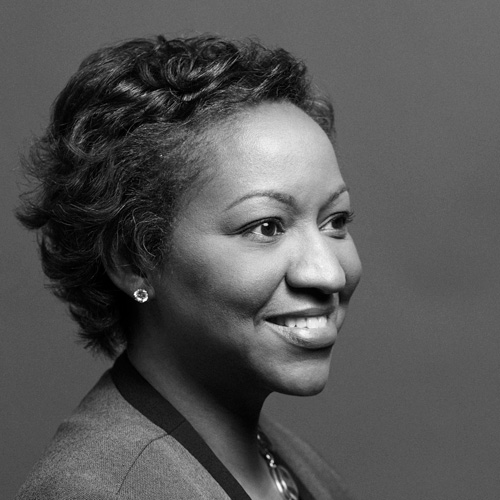When Suzanne Lalonde answered a help wanted ad for a casino cocktail waitress, she couldn’t have guessed that a decision she made as a college freshman would eventually lead to her managing two casinos that generate about $45 million in revenue annually. But it would also prove to be the first step on her unlikely career path.
“I actually had no idea what a casino was,” she says. “I only responded to the ad because of the location, which was close to school.”
During the interview, Lalonde learned that the waitress position had been filled but that a croupier class was starting the following week. During the six-week course, Lalonde learned to deal American roulette. She became fascinated with the technical aspect of croupier work—dealing with finesse and accuracy and adding up winning bets in mere seconds. She also got to know the staff and listened eagerly to their tales of world travel in the industry. “I quickly decided I wanted the same thing,” Lalonde says.
Within a year, she had honed her chip-handling skills so much that the casino promoted her to inspector, where she ensured game integrity, guest service, dealer development, and accurate payouts. The increased responsibility was substantial, but she missed the energy at the tables. Every day on her way to the break room, she would peer over at the craps tables. Even looking at a table was considered a transgression at the time; male players believed women could bring back luck if they looked at the dice.
It was all so intriguing: the superstitions, the taboo, the air of seriousness, and the back and forth between the players, the dealers, and the boxman who controlled the game and the cash. When her general manager asked her what she might want to do next in the casino, she immediately told her craps. The manager chuckled at first, but she saw that Lalonde was serious. After a few weeks of gentle but insistent prodding by Lalonde, she gave in.
She trained four hours a day for eight weeks and passed—one of only four out of the twelve students to do so. The chauvinism of the players didn’t die easily; they staged a walkout in protest of the female dealers. They came back a week later, but they continued to test Lalonde and the other two female dealers with pranks and even intimidation. But Lalonde didn’t back away from the experience.
“Over time, with mental toughness, resilience, and the support of the boxmen, we were finally accepted,” she says.
As a professional dealer who had demonstrated toughness, the world opened up to Lalonde. She took a job as a craps dealer on a cruise ship based out of Miami and moved up the ranks to boxman, pit boss, and eventually shift manager. After two years, she joined Casinos Austria, for which she relocated to Poland. She then transfered to Canberra to open its first Australian casino. She spent a year there before accepting her next contract in Prague, which she remembers as the most beautiful city in the world. Next, a friend enlisted Lalonde’s help in leading a new casino company in Turkey. For a time, it seemed as if Lalonde would live in every corner of the earth. But then she had a child, and staying in one place became essential.
She worked with Sheraton in Nova Scotia for thirteen years, where she trained in leadership and business management. In 2010, she was recruited for a position in Alberta, and two years later, she met George Goldhoff, CEO of Pure Canadian Gaming, who offered her a job managing Casino Calgary. Heading into her second year with Pure, Lalonde was achieving strong results at Casino Calgary, so she was given the additional responsibility of Casino Lethbridge and promoted to vice president and regional general manager.
Alberta has a unique gaming model. The casinos are regulated provincially, and the province takes the lion’s share of the revenue. In slots, it’s an 85:15 split. Table games work on the charity model, with half of the revenue going to an organization. Because of that, there hasn’t been much opportunity for casino owners to reinvest in the facilities. Pure came into the market in 2011 with capital, bought four casinos from private owners, and invested in upgrades, employee training, and player development plans.
“Some things in Alberta have changed with the introduction of our company,” Lalonde says. “There’s still lots of room for improvement, but it’s become more competitive and progressive.”
Rising through the ranks and making a career of it is by no means the rule in the world of casinos, which tend to employ students and other workers in transition. Still, Lalonde says that the turnover rate is less than 20 percent at her casinos. She attributes this to Alberta’s demographics and Pure Canadian Gaming’s culture, where the mission is to “make good things happen for other people.”
“I actually had no idea what a casino was. I only responded to the ad because of the location, which was close to school.”
In her current role, Lalonde says that the dealing skills that wowed her in her first years in the business are not what she focuses on in hiring. She looks closer at the spirit of the candidate to see if it would be a good match. Maybe candidates with a glint in their eye remind her of herself when she first started.
“At one point in the industry, people were focused on technical skill, but we don’t focus on that at all,” she says. “We hire for attitude and train for skill. We’re always looking for people who have a positive outlook, good energy, a can-do attitude, and love to be around other people. You can teach them all the technical skills they need afterward.”
Looking back on all the adventures the casino industry has allowed her to have, Lalonde has a difficult time finding one experience that outshines the others. Prague was eerily beautiful with the fog-shrouded Charles Bridge, and Turkey’s vibrant markets were wonderful as well.
“I love the life on the islands, but I also love the bigger cities,” she says. “There is no place as spectacular as Europe and no place like home but Canada. I guess if I had to do it all again, I would.”

